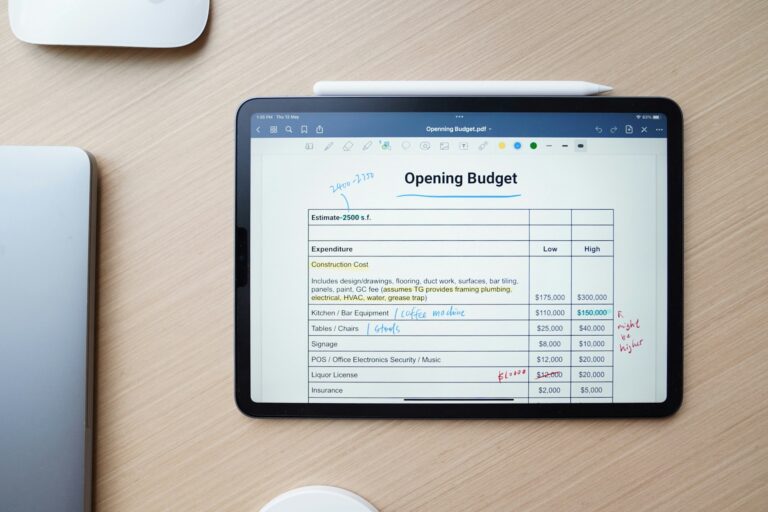Budgeting vs Forecasting: What’s the Difference and Why Does It Matter?
Businesses run on money. Without cash flow, your business will quickly fall behind. You need a budget to manage your money and a forecast to better understand what your finances may look like in a given reporting period.
If you don’t know the difference between budgeting vs forecasting, you might think they’re the same.
They’re not.
We’re going to explain how both budgets and forecasting work to help you better manage your finances this year.
What is Budgeting and How Does it Work?
You need a smart business budget, but what does this really mean? Your budget is a strategic plan for your business that projects:
- Cash flow
- Revenue
- Expenses
Think of budgeting as where you want your business to be during a specific period of time. You have X revenues, expenses and cash flow, so you allot a certain amount to reducing debt or investing in growth opportunities.
Budgets are often made on an annual basis and are based on performance expectations.
Your annual budget helps you meet strategic goals through planning and expectations. Statistically, 82% of businesses fail due to cash flow issues. Budgets can help you identify key issues in your business and there are many types to choose from:
- Incremental
- Activity-based
- Value proposition
- Zero-based
- Cash flow
For budgets to be beneficial in the long-term, it’s important for them to compare the budget to the results and fine-tune things along the way. An opportunity may arise where you spend far more one month on inventory, yet it is to fulfill a larger order and drives growth.
Budgets are for guidelines and provide a base for what you could be spending.
What is Forecasting and How Does it Work?
Forecasting is a projection of your business’s future based on existing data, opinions and potential outcomes. Proper forecasts require a deeper look into a business’s macroeconomics that can sway your financials.
For example, if the price of lumber goes up for a builder and leads to less home building this year, it’s a macroeconomic factor that a forecast can identify.
While your budget is often short-term, forecasts cover both short- and long-term projections. Forecasts also typically change more often and require adjustments throughout the forecasting period to account for changes in both the business and economic climate.
Forecasts can help your business understand if a budget will be met, so they do work in tandem to help businesses better understand what the future may hold.
Budgeting vs Forecasting: What’s the Difference?
Budgeting and forecasting share some similarities, but they differ in many ways, including:
- Purpose: A budget is a financial plan that helps a business achieve a goal. When creating a budget, you work backward from your goals to determine how you should allocate your resources to achieve your objective. Forecasts are projections of what the future might look like. They use past data and assumptions to create these predictions, which business owners use to make informed decisions.
- Time period: Budgets are often focused on the short-term, ranging anywhere from a week to a year. Long-term budgets typically aren’t ideal, as they can’t account for changes that may arise in the future. Forecasts, however, can be created for longer periods of time to give you an idea of what the future may look like for your business. They can be adjusted as things change and help you develop a solid strategy to achieve your future goals.
- External factors: Budgets often focus on factors that are within the business’s control. Forecasts take external factors into consideration, including economic conditions and market trends.
- Level of detail: Budgets are highly detailed and allocate funds for every expected expense, revenue stream, and resource. They serve as a structured financial plan, often broken down by department, category, or project. Forecasts are typically less granular and focus on the most critical variables that impact financial performance, such as sales trends, cost fluctuations, and market conditions. They provide a big-picture view and are often updated regularly to reflect new insights.
Budgeting is more concrete and designed to help you reach your goals, while forecasting paints a picture of what your business’s finances may look like in the future based on potential external factors and historical data.
While different in many ways, budgets and forecasts share the same objective of helping you reach your business’s goals.
Why Do They Matter?
Budgeting and forecasting are both essential tools for decision-making and planning.
- Forecasting helps you predict future trends and adjust your trajectory if things aren’t going as planned. For example, maybe you forecasted growth based on one large deal with a client. Unfortunately, things didn’t pan out as planned. You can easily adjust your forecast to reflect these changes and adjust course to stay on track to reaching your goals.
- Budgeting gives you a roadmap to achieving your financial goals and allocating resources. Without a budget, it will be difficult to measure your success and ensure your business is progressing toward its goals.
Forecasting and budgeting go hand-in-hand to help you, as a business owner, make more informed decisions.
Schedule a consultation to learn more about how we can help you with your accounting needs so that you can make accurate budgets and forecasts!










